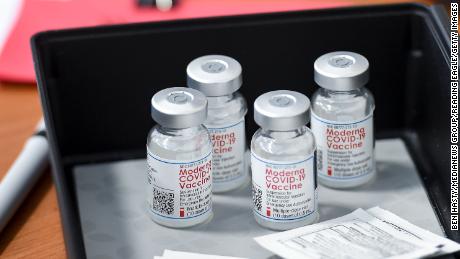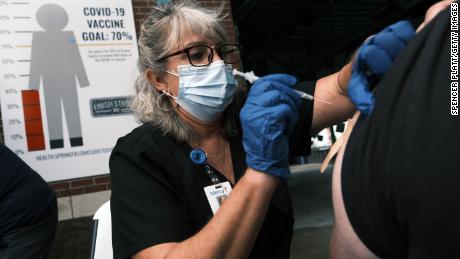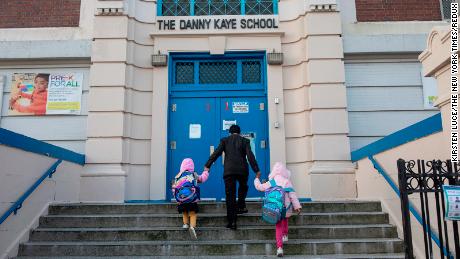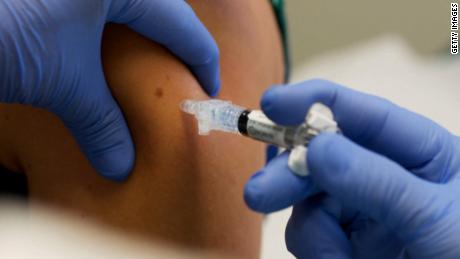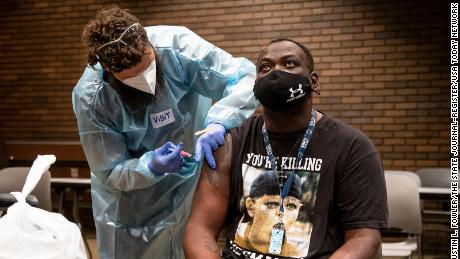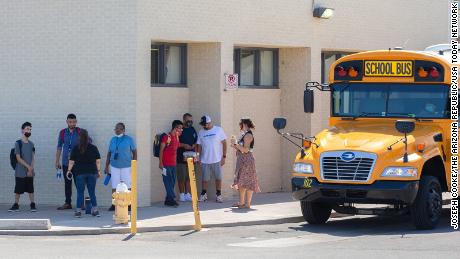Breakthrough infections are expected. But the unvaccinated are ‘the big highway of transmission,’ experts say
The severity of the illness — not the number of people who contract the virus — is a crucial concept for people to understand at this point in the pandemic, said Dr. Rochelle Walensky, who heads the US Centers for Disease Control and Prevention.
“I think we all have to recognize that with 164 million people who are vaccinated, we should expect tens of thousands, perhaps, of breakthrough infections,” Walensky told CNN’s Wolf Blitzer on Thursday.
“Those breakthrough infections have mild illness. They are staying out of the hospital. They are not dying, and I think that that’s the most important thing to understand,” Walensky added.
Full vaccination is necessary for optimal protection against Covid-19 — especially the highly contagious Delta variant, which accounted for more than 93% of all cases in the US this week.
Dr. William Schaffner, a professor at Vanderbilt University Medical Center, echoed Walensky’s take on how vaccination lowers the intensity of Covid-19 symptoms when breakthrough cases happen.
“This is largely a problem when it comes to severe disease, the disease that requires hospitalization, it’s among the unvaccinated. It really is pretty unusual to have a vaccinated person be hospitalized. Most of those people tend to be older and very, very frail. They never were able to respond to the vaccine, and we have the occasional immunocompromised person whose immune system also couldn’t respond optimally to the vaccine,” Schaffner told CNN on Thursday.
“So the unvaccinated continue to be the big highway of transmission. The vaccinated, they’re little side streets. Let’s not get preoccupied with that. We need to get more people vaccinated.”
And if more people do in fact get their shots, case surges can be controlled in a matter of weeks, Walensky said Thursday.
“However, our models show that if we don’t (vaccinate people), we could be up to several hundred thousand cases a day, similar to our surge in early January,” she said.
The good news is that vaccinations have picked up.
Back-to-school season is looking grim amid Delta surge
Arizona’s second largest school district is dealing with 103 active cases of the virus, according to the district’s online Covid-19 dashboard. Since the school year began on July 21 in Chandler Unified School District, there has been a total of more than 140 cases.
“We will continue to monitor confirmed cases and make adjustments to our mitigation plan as necessary,” Chandler Unified School District spokesperson Terry Locke told CNN Thursday.
Only students who exhibit symptoms are required to quarantine in Chandler, and it is optional for all students with known exposure to Covid-19, regardless of their vaccination status.
Meanwhile, Indianapolis Public Schools officials on Tuesday notified the parents of 61 fourth-grade students that their child must “quarantine for 14 days after coming in close contact with a school staff member who tested positive for Covid-19,” district spokesperson Alpha Garrett said in a statement.
The students will continue learning remotely during their quarantine, Garrett added, and said the district requires students to wear masks regardless of vaccination status.
Masking students in schools is exactly what Walensky is urging districts to do as children under 12 years old remain ineligible for a vaccine.
“In the meantime, please know that the best way to protect your unvaccinated children is to surround them with vaccinated people,” Walensky said Thursday. “Our children deserve to have full-time, in-person, safe learning with prevention measures in place, and that includes masking for everyone in schools.”
But that may not be the case in Arkansas, where two legislative measures didn’t pass Thursday in the state’s House Public Health Committee that would have allowed local school districts to require masks for children under 12.
Republican Gov. Asa Hutchinson said he was “disappointed” by the vote.
Vaccine mandates are picking up
First it was the mask mandates. Now vaccinations are being required by multiple entities — public and private.
California public health officials on Thursday moved to require the state’s nearly two million health care workers to be fully vaccinated against Covid-19, becoming the first state to take this step.
The state Department of Public Health is also mandating that hospitals and nursing homes verify that visitors are fully vaccinated or have tested negative for the coronavirus.
The move comes as the state sees yet another Covid-19 surge, despite more than 53% of the state’s population being fully vaccinated, CDC data shows.
“As we continue to see an increase in cases and hospitalizations due to the Delta variant of COVID-19, it’s important that we protect the vulnerable patients in these settings,” said Dr. Tomás J. Aragón, the state’s health officer.
In Florida, where the positivity rate is among the highest in the country, the Jackson Health System has decided to require all of its employees, physicians and students to be fully vaccinated, CEO Carlos Migoya said Thursday.
And vaccination will have its perks. Eligible employees who are fully vaccinated by September 30 will receive a one-time payment of $150 in recognition of their decision, Migoya said.
Those who do not receive at least one dose of a vaccine by August 23 will be required to wear an N95 mask at all times while inside Jackson facilities, including clinical and non-clinical areas.
In Miami-Dade County, employees will be mandated to show Covid-19 vaccination proof or be tested weekly for the virus, Mayor Daniella Levine Cava said Thursday. The policy will become effective the week of August 16 for non-union employees, and exceptions will be evaluated on a case-by-case basis, Levine Cava added.
Virginia and Hawaii officials Thursday announced similar policies of proof-of-vaccination or weekly testing for their state employees.
Hawaii’s announcement came on the same day it set a new single-day record for new coronavirus cases, with 655 reported Thursday.
“This alarming rise in cases will not end on its own,” Hawaii Health Director Dr. Libby Char said. “The return to normalcy we were all fighting so hard to attain is in jeopardy.”
CNN’s Lauren Mascarenhas, Michael Nedelman, Melissa Alonso, Elizabeth Stuart, Deidre McPhillips, Rebekah Riess, Cheri Mossburg, Raja Razek and Andy Rose contributed to this report.
![]()




